Before 2014, Parliament had approved a new comprehensive agreement with Russia based on common values and interests. However, the Parliament has repeatedly expressed its deep concern about respect for human rights, the rule of law and the state of democracy in Russia, for example with regard to laws against lgTBQ « propaganda » and the crackdown on independent NGOs or those receiving funds from outside Russia. In April 2017, Parliament passed a resolution condemning Navalny`s arrest. In 2016, Parliament strongly condemned the unprecedented level of human rights violations committed against Crimean residents, in particular Tatars. In March 2017, parliament called on Russia to release more than 30 Ukrainian citizens detained or subjected to limited conditions of liberty. In 2018, she called for the release of Ukrainian director Oleg Sentsov, who spoke out against the illegal annexation of Crimea, and awarded him the Sakharov Prize. Sentsov was released in 2019 as part of a prisoner exchange between Russia and Ukraine. Alexei Navalny has been nominated for the 2019 Sakharov Prize. [4] Website of the EEAS, the European Union and the Russian Federation: eeas.europa.eu/headquarters/headquarters-homepage/35939/european-union-and-russian-federation_en Until the outbreak of the crisis in Ukraine, the EU and Russia developed a « strategic partnership » covering issues related to trade, economy, energy, climate change, research, education, culture and security, including the fight against terrorism, nuclear non-proliferation and the resolution of the Middle Conflict. East[1]. At the political level, the current legal basis for EU-Russia relations is the Partnership Cooperation Agreement (PCA), which entered into force in 1997, initially for a period of 10 years.
Since 2007, it has been renewed every year. The PCA is complemented by agreements in the fields of politics, business, science, environment and energy. In 2012, Russia joined the World Trade Organisation and expanded the possibilities for economic relations with the EU and other foreign partners[2]. The EU is Russia`s main trading partner, while Russia is the EU`s fourth largest trading partner. In the field of energy, the EU and Russia launched the EU-Russia Energy Dialogue in 2000, which focused on the oil and gas sector, energy efficiency, EU cooperation and Russian electricity grids, trade and the safe use of nuclear materials[3]. In March 2014, following Russia`s illegal annexation of Crimea, the EU imposed restrictive measures, including targeted economic measures, on Russia. In return, Russia imposed restrictions on imports of agricultural products and food from the EU[4]. However, Russia remains an important partner and strategic player for the EU. [71] Fyodor Lukyanov, « Russia and the West no longer need each other, » IPS, October 20, 2020, www.ips-journal.eu/topics/security-und-Verteidigung/Russland-und-der-Westen-brauchen-nicht-mehr-4730/ The legal basis for EU-Russia relations is the Partnership and Cooperation Agreement (PCA). The PCA, signed in June 1994 and in force since December 1997, should be valid for 10 years. Since 2007, it has been automatically renewed every year until it is replaced by a new agreement. [210] The PCA provides a political, economic and cultural framework for Relations between Russia and the EU.
It is mainly about the promotion of trade, investment and harmonious economic relations. However, it also mentions « the common commitment of the parties to democratic principles and human rights, as defined in particular in the Helsinki Final Act and the Charter of Paris for a New Europe » and a commitment to peace and security in the world. [211] [212] A replacement agreement has been under negotiation since 2008 and a more detailed agreement is being further negotiated and acceded to the WTO. Work in this area has already taken a major step forward with the conclusion of negotiations on visa facilitation and readmission agreements. The EU and Russia are in the process of ratifying these agreements. The Visa Dialogue will continue to examine the conditions for reciprocal visa-free travel from a long-term perspective. In a statement issued on 15Th December 2011 at the end of an EU-Russia summit, the President of the European Commission confirmed the launch of the « Joint Steps towards Visa Waiver » with Russia. [213] Russia hoped to sign a visa-free travel agreement as early as January 2014.
[214] [11]Katinka Barysch, « The EU and Russia: Strategic partners or swarbbling neighbours, » Centre for European Reform, May 2004, www.cer.eu/sites/default/files/publications/attachments/pdf/2011/p564_russia_strat_squabb-940.pdf mid-2000s, successive disagreements[10],[11] on issues such as NATO enlargement, EU enlargement, gas disputes between Russia and Ukraine in 2006, the Russian-Georgian conflict (2008), cyberattacks, and » Color revolutions ». The 2014 Ukrainian crisis led to the suspension of the main mechanisms of interaction between Russia and the EU. [12] Russia is no longer a member of the G-8[13] and individual and sectoral sanctions have been imposed on Russia. [14] Since then, EU sanctions have been extended every six months, subject to compliance with the Minsk agreements. [15] In response, Russia adopted a series of countermeasures against the EU. [16] It is true that the effectiveness of these sanctions is constantly under discussion, as the economic costs on both sides have not been able to lead to a change in policy. Russia has chosen not to participate in the European Union`s European Neighbourhood Policy (ENP) because it seeks to be an « equal partner » of the EU (as opposed to the « junior partnership » that Russia sees in the ENP). As a result, Russia and the European Union have agreed to create four common spaces for cooperation in different fields. In practice, there are no significant differences (apart from the designation) between the sum of these agreements and the ENP Action Plans (which are adopted jointly by the EU and its ENP Partner States). .

Commentaires récents